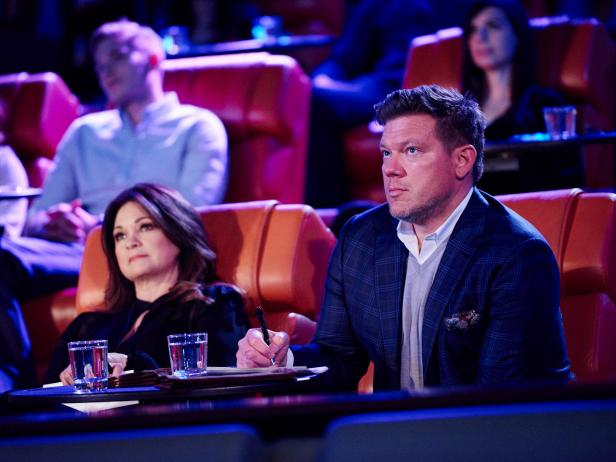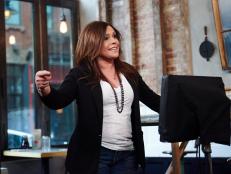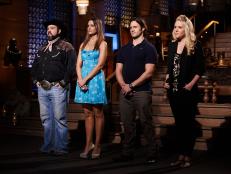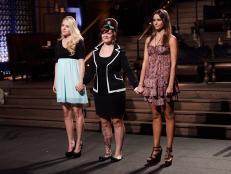Exclusive: Tyler and Valerie Reflect on the Finalists' Week 1 Performances

Eddy Chen, 2016, Television Food Network, G.P. All Rights Reserved.
The Comeback Kitchen competition came full circle for mentors Tyler Florence and Valerie Bertinelli on Sunday night, when they guest-judged the premiere of Food Network Star, Season 12. Martita, the winner of the three-week journey to redemption, took her place among the other 12 hopefuls. And Tyler and Valerie were on hand to see the fruits of their training and their hard work pay off when she delivered a strong first bite of food and a solid presentation.
When we caught up with Tyler and Valerie on the set of the premiere at iPic Theaters, we asked each of them about the search for Star power and Martita's place in the competition. Read on below to see what they had to say, and get their takes on the importance of a strong cold open. Then, click the play button on the video above to hear more as they reflect on the finalists' Week 1 performances.
Tyler Florence: I think she has everything it takes. She just sparkles on camera. ... She has a culinary point of view that is really fun, this sort of Mexi-Cali, fun home-cooked stuff. Her food is great, her food is simple, her recipes are doable. I think she’s very relatable. ... I think, without a question, she is one to watch.
Valerie Bertinelli: You don’t know how to put your finger on it, but you know it when you see it. ... You want to be around them, you want to watch them, you want to be in their company, you want to learn from them, you want to cook with them.
TF: That “it factor" is just raw determination. It's beyond passion, to be honest with you. There’s a lot of wild, unbridled passion out there, and not everybody has the temperament, the patience, the creativity, the intellect to be on television, and that’s OK. ... But it’s kind of fun to watch everybody try really hard, because you never know when somebody pops up out of the blue and goes: “Wow, look at you. You are amazing.” And that’s the great thing about this competition because we find everyday, real people who absolutely have everything it takes to be a superstar. You know, I was a line cook in the early '90s when I started on Food Network. I was executive chef at an Italian restaurant in 1996. I was just an everyday guy who knew how to cook, and so having that “it factor" is about honing your craft and studying and really taking life lessons from the people who paved the way before you, and really hone your skill like you were born to do it, and when you see that sheer level of determination, that’s beyond passion. It’s unavoidable. It’s captivating.
VB: Well, you never have a second chance to make a first impression is what they say, and it’s true. ... I think the easiest way to make a first impression is to be the most-authentic you [that] you can be. Just be yourself because in the long run, when you’re working long hours and you’re doing your show, you can’t be anybody but yourself. Because when it’s all stripped down, all you have left is you. So just be yourself. Don’t try to be anybody but you. But the best version of yourself.
VB: Relaxing and not trying too hard. Again, it comes back to just the more authentic you [that] you are, the easier you can get across to people and what their expectations may be when they tune in to you. You’re kind of letting go of all — and of course that’s the hardest part is letting go and not trying too hard. I’ve been guilty of trying too hard a lot also. So there’s a fine line. I don’t envy any single one of them that’s for sure. I’d rather be on my side, not on their side. But if anything, I just ... want them to know that we’re rooting for all of them.
TF: A cold open is basically a trailer for your television show. So it’s got to be quick and fast, and you have to get a point across, which I think is really great because it forces the contestants and your script writing to really focus your message. Like, this is who I am, here’s my show, and it has to come across as really entertaining. So you’ve got ... probably 15 seconds, 30 seconds, 45 seconds to really get that point across, and it has to be very catchy; it has to be very memorable and something that when the show comes on and the television’s on on the other side of the room, you get excited about hearing it. So it takes a lot of focus and it takes a lot of creativity.

































